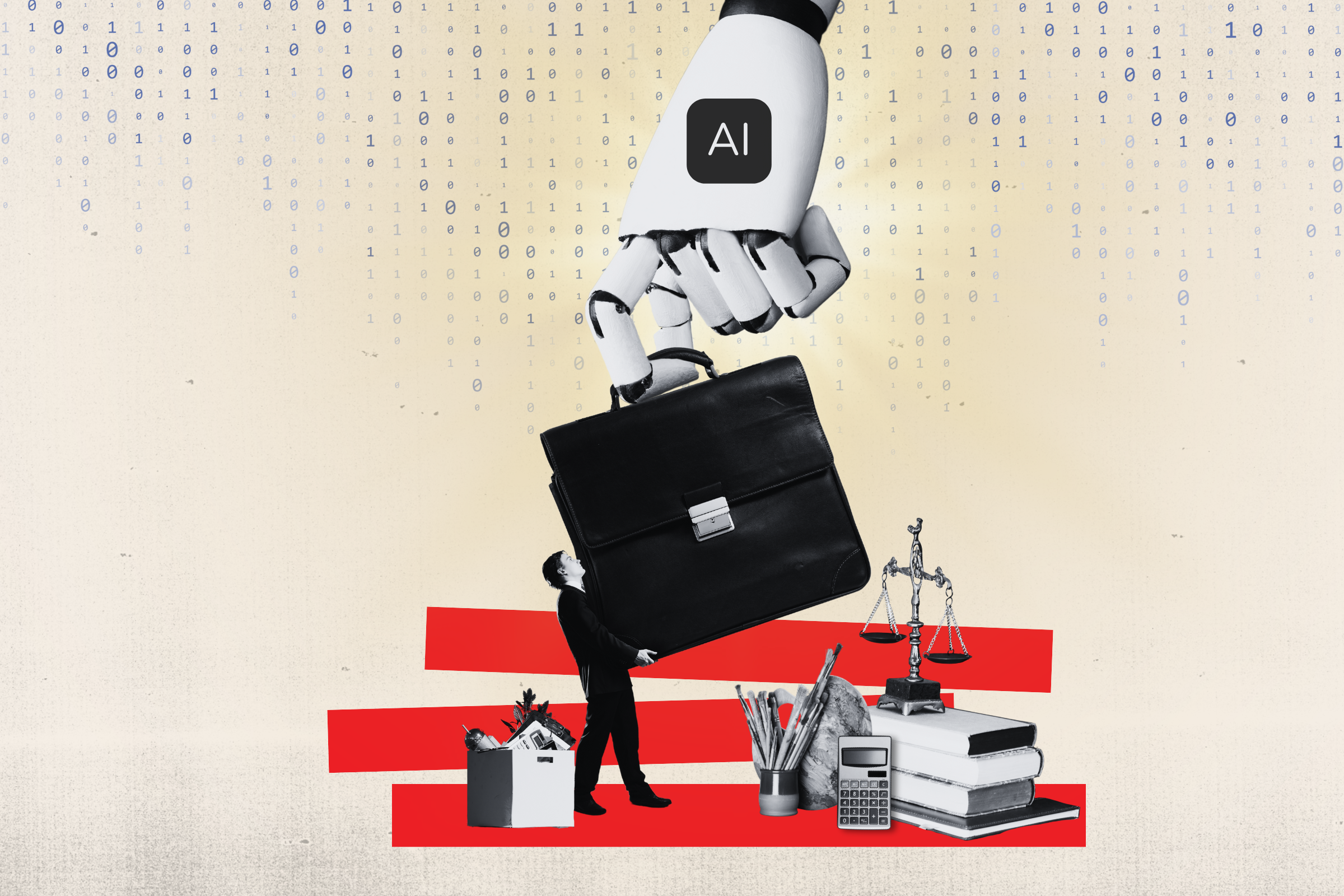Uncommon Knowledge
Newsweek is committed to challenging conventional wisdom and finding connections in the search for common ground.

The rapid advancement of artificial intelligence technology is reshaping the job market, posing significant risks to various professions.
According to a recent report by Goldman Sachs, AI tools could impact 300 million full-time jobs worldwide, leading to considerable disruption in the labor market. As businesses increasingly adopt AI to improve efficiency, certain jobs are more vulnerable to automation. Here are five fields at risk from AI.
Jobs that involve data analysis, bookkeeping, and basic financial reporting are highly susceptible to automation. These roles, which focus on repetitive administrative tasks, are prime candidates for AI-driven efficiency improvements.
“When thinking about the implications for specific jobs, these tools are more likely to replace tasks than jobs, which may mean that you need fewer people to do the work or it could mean that more people are needed because the productivity is much higher with all the low value work is being done by machines,” Carter Price, senior mathematician at the RAND Corporation think tank told Newsweek.
The customer service sector is already experiencing significant changes due to AI. Chatbots and AI-powered assistants are increasingly handling customer inquiries, reducing the need for human agents.
According to a study by Gartner, by 2025, 80 percent of customer service and support organizations will be applying generative AI technology in some form.
This trend is already visible, with companies like IBM and British telecommunications giant BT Group citing AI as a reason for job cuts and hiring slowdowns.
“We have already seen the deployment of these technologies in customer service roles either as chatbots or as chatbots hooked up to text to voice systems,” Price said.
“An LLM can quickly search all the relevant manuals or other text documentation to find the relevant information.
“However, this still is likely to need human supervision and complex cases will need to be handled by humans,” he added.
LLM stands for large language model – a type of AI algorithm capable of drawing on vast quantities of data to generate content.

AI’s ability to read, write, and understand text-based data puts media jobs at risk, including roles in advertising, content creation, technical writing, and journalism.
“LLMs, in their most basic form, have a tenuous relationship with the truth but are facile with written text,” Price explained. “The transformer, the core technology behind LLMs, was originally developed for machine translation back in 2017. However, transformers proved so effective with text generation that they are being used as generalized tools for examining and producing text, images, sounds, and other data forms.
“The AI tools we interact with today have been augmented and are better with the truth but still make suggestions like eating rocks […].
“There is a lot of ongoing work to make these tools more reliable and we can expect significant improvements in the coming months and years,” he added.

The legal industry is not immune to the impacts of AI. Roles such as paralegals and legal assistants, which involve consuming large amounts of information and synthesizing it into legal briefs or opinions, are particularly vulnerable.
AI can replicate many of these tasks, although complete automation is unlikely due to the need for human judgment.
“Many paralegal tasks require sifting through large data sets of text which is something that LLMs excel at. However, these jobs also require careful attention to language and accuracy […]. Thus, it is very important for a human to oversee the work just as a senior attorney will review the work of a paralegal or associate,” said Price.
Financial analysts and personal financial advisors are also at risk. These professionals handle significant amounts of numerical data, identifying trends and making investment recommendations.
AI can analyze data, highlight investment trends, and forecast better investment mixes more efficiently than humans.
“For […] financial analysts, a lot of data analysis the tasks can and have been automated even before LLMs by the people in these jobs themselves. This allows analysts to focus on higher value work like interpreting the results or digging deeper into the subject.
“Because the whole point of these jobs is to extract accurate information from noisy data, human supervision is very important. As AI systems become more trustworthy, the level of supervision will likely decline,” said Price.
Do you have a story we should be covering? Do you have any questions about AI? Contact LiveNews@newsweek.com
Newsweek is committed to challenging conventional wisdom and finding connections in the search for common ground.
Newsweek is committed to challenging conventional wisdom and finding connections in the search for common ground.